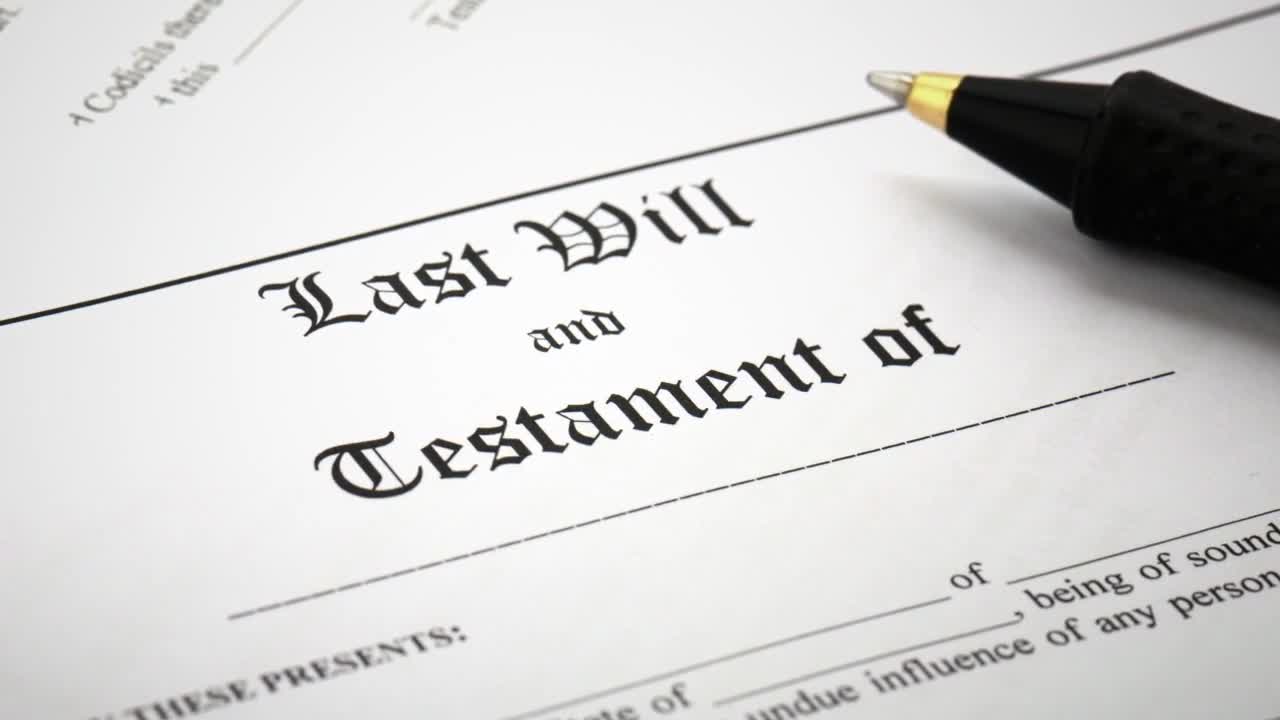BALTIMORE — It's a conversation many of us put off — who makes decisions for you if you can't, and who inherits what you leave behind?
National Estate Planning Awareness Week is a reminder to create a will, update it or start talking about it. Attorneys say you should have a will as soon as you turn 18. It's not just about your assets — it's about who makes health and financial decisions for you, and you want to choose the right people to carry out your wishes.
When it comes to estate planning, Virginia Kwitkowski is on top of it.
"We had our first will very early in our marriage," Kwitkowski said.
Her husband was active duty military at the time, then they had a child and updated it again.
"And then in 2010, our son was pretty much grown at that point, we went ahead and updated our will through an attorney, and that's the will that we still have," Kwitkowski said.
Recently, she helped her son — now engaged — set up his own will through MetLife Legal Plans, a prepaid or low-cost service many employers offer.
"So, I was able to print him an online will, him and his fiancé, and then I have versions for them now that they're married, they have to get a new one. So I think there's a lot of ways now to do this," Kwitkowski said.
Virginia even brings it up with her friends.
"And I'll say, Hey, do you guys have a will? And most of them say they do. The few that say they don't are like, we've been meaning to get around to it," Kwitkowski said.
That's a common response says Alice Young, an attorney with Nusinov Smith LLP and co-chair of the outreach and education committee with the Baltimore Estate Planning Council.
"You need a will to carry out the terms of your wishes after you pass away. But the fact is, none of us gets out of here alive," Young said.
The hardest part may be deciding who should inherit your estate or care for your children.
"A plan doesn't have to be perfect to be in place. And a lot of people, especially people with young children, worry that if they don't figure out the perfect plan, it won't be good enough, and so they put it off and put it off and put it off. But in fact, a good enough plan is good enough, and while you're well and healthy, you can always change it," Young said.
How often should you be changing it?
"If your assets substantially change, if your family substantially changes, or if the law substantially changes, those are three triggers," Young said.
Cost can also be a barrier. Local non-profits sometimes offer free estate planning clinics, and there are pro bono or low bono attorneys. Online services can help too — but Alice warns you get what you pay for.
"If you're doing your planning on your own, I think there is potentially a gap in the confidence that you might feel. The closer you get to it being your last estate plan, the higher degree of confidence you'll want that it's gonna work when you need it to work," Young said.
She recommends adults have three key documents: a healthcare directive, financial power of attorney, and a will.
"The important thing is to just start asking questions. Find out what tools are available to you and what people you want to have on your team for the estate planning, and then have the conversations about what that plan should look like," Young said.
If you already have these documents, review them every five years. Check that you've designated beneficiaries on your life insurance and retirement accounts. And while you're having these tough conversations, consider funeral pre-planning. It saves your family from guessing and from additional expenses.
The Baltimore Estate Planning Council and Liberty Senior Center are holding a panel that's open to the public. It's a chance to ask the experts any questions you may have about the process. The event is on Thursday, October 23 from 10:00 AM - 11:30AM at the Liberty Senior Center located at 3525 Resource Drive, Randallstown, MD.
And details on upcoming free estate planning clinics through the Pro Bono Resource Center of Maryland is available online. There's a clinic on October 30th from 10:00 AM – 3:00 PM at the Ascension Saint Agnes Hospital, 900 S Caton Avenue, Baltimore, MD 21229. They're accepting two waves of clients (10 AM & 1 PM). Registration is required. Those interested can register for the clinic by calling 443-884-9471.
And in Maryland, the Maryland Advance Directive Program (ADP) offers residents age 18 and older a way to name someone you trust to make health-care decisions for you, if you cannot. The program guides you through creating an advance directive — a legal document stating your treatment preferences — and storing it online so your health-care agent and providers have access when needed. It's also free. Click here for more information.
This story was reported on-air by a journalist and has been converted to this platform with the assistance of AI. Our editorial team verifies all reporting on all platforms for fairness and accuracy.




